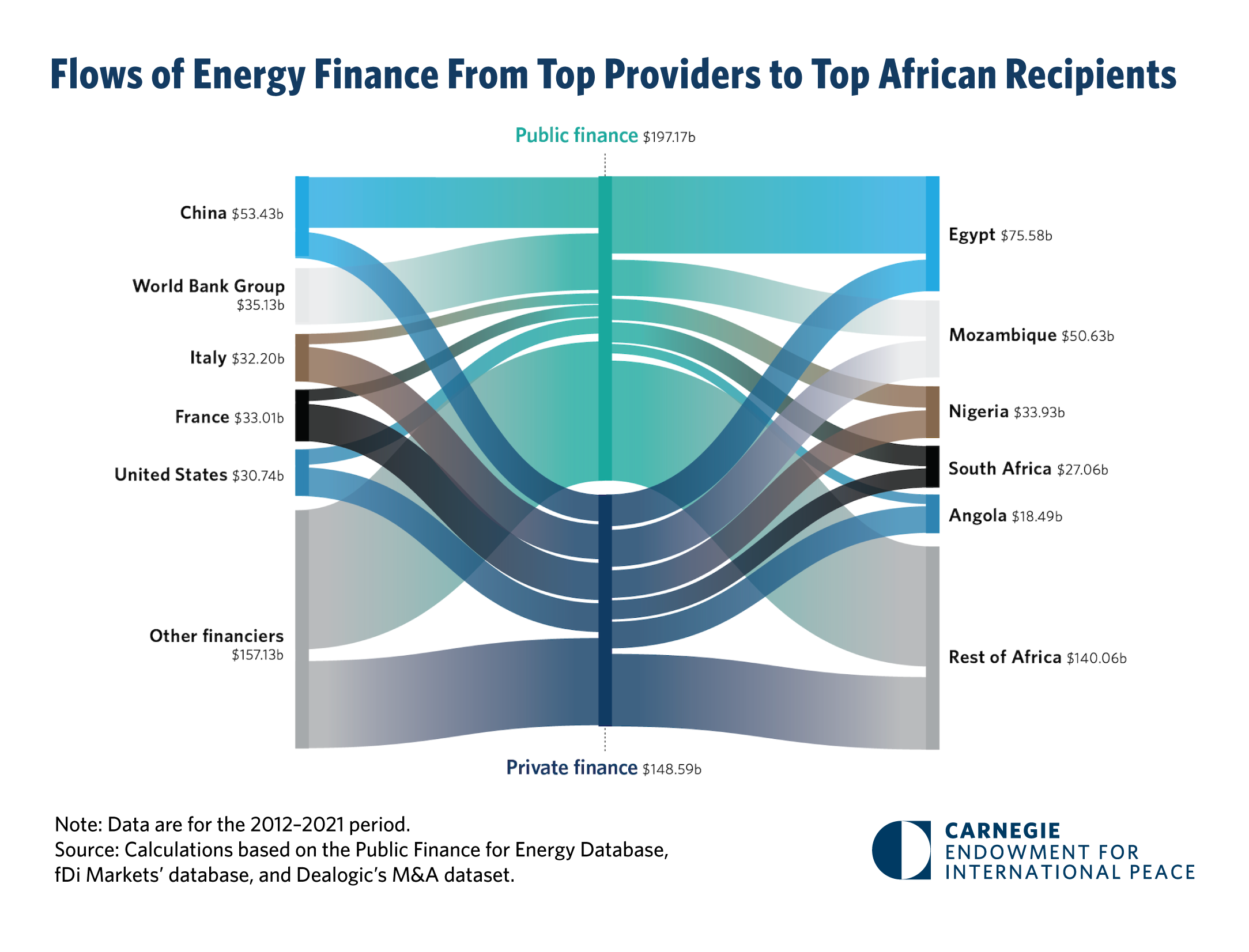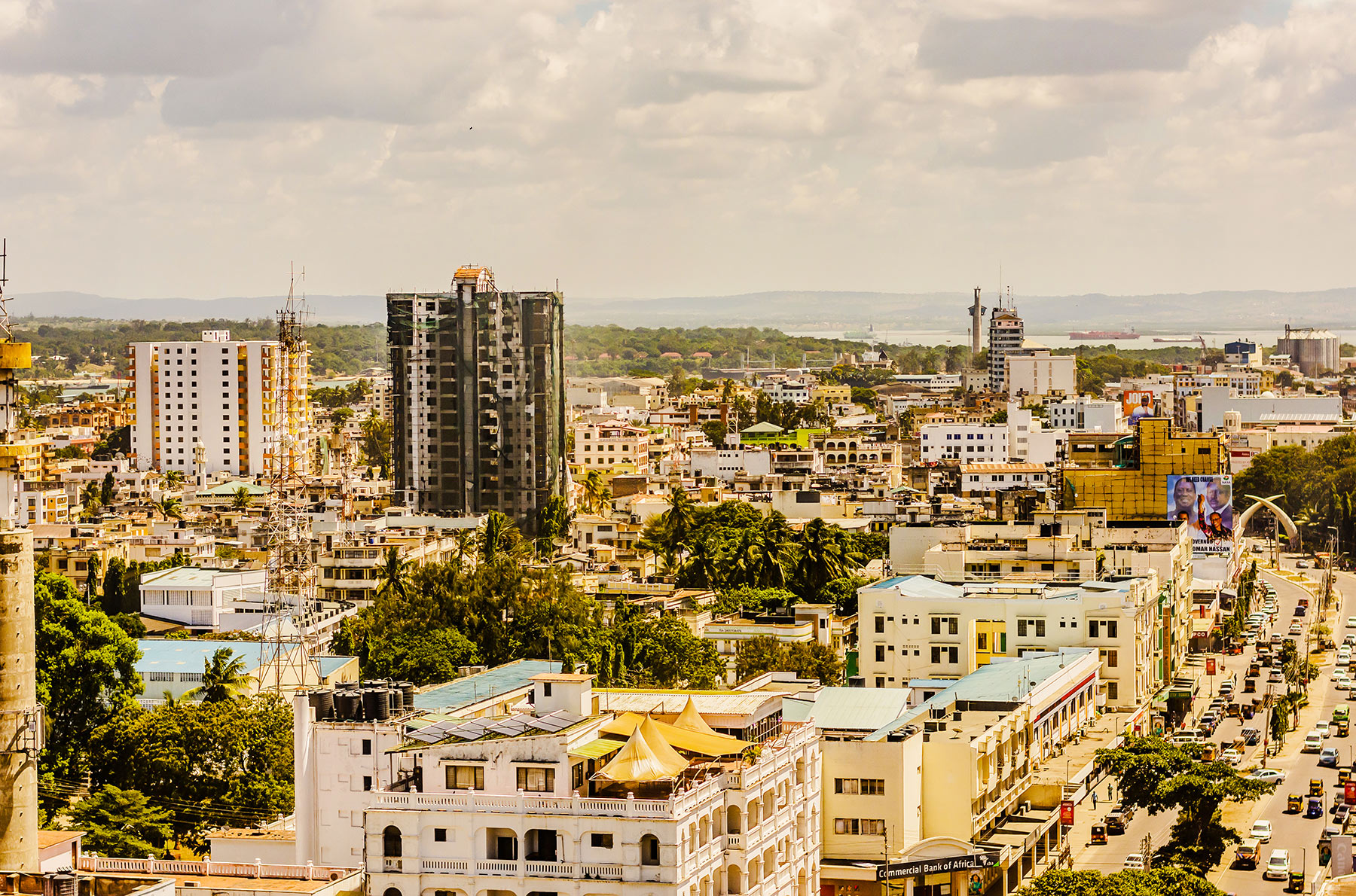DECEMBER 2023
Dear Friends,
The year 2023 is ending on a very promising note for global climate action. The Carnegie Africa team traveled to Dubai for the 2023 United Nations Climate Change Conference, or COP28. This week, the conference ended with a landmark agreement from nearly 200 countries on a global plan for an eventual transition away from fossil fuels. Furthermore, a loss and damage fund, for countries facing the most devastating effects of climate change, was established on the first day of COP28. The COP28 host, the government of the UAE, also launched a $30 billion Alterra green investment fund to bridge the climate finance gap.
There were also other interesting Africa-focused initiatives for climate action. Kenya’s President William Ruto, along with various African leaders, introduced the Africa Green Industrialization Initiative to promote green economic growth, ensure climate adaptation, and accelerate green industries and businesses by leveraging the U.A.E.’s $4.5 billion “Africa Green Investment” fund announced at the September African Climate Summit in Nairobi. $2.6 billion of the Africa Green Investment fund has already been allocated toward clean power projects across eight countries on the continent.
During the conference, I had the privilege of participating in a panel discussion hosted by the Atlantic Council’s Global Energy Center on how public-private partnerships can drive investment in the minerals and metals essential for the low-carbon energy transition. I was grateful for the opportunity to contribute to such a meaningful discussion on transition minerals, drawing on key findings from my recent paper with Alexander Csanadi on how African countries can participate in U.S. clean energy supply chains. On the sidelines of COP, I discussed the opportunities and challenges that African countries face in their energy transition with Jason Bordoff, the founding director of the Columbia University Center on Global Energy Policy.
A new Carnegie Africa paper entitled “Who Finances Energy Projects in Africa?”, written by Oyintarelado Moses, further contributes to the discussion regarding Africa’s energy transition. Moses takes stock of the $35 billion per year the continent has received over the past decade to fund fossil fuel and clean energy projects. Our Chart of the Month, below, makes clear that the distribution of energy finance across Africa is distinctly unequal, privileging Egypt, Mozambique, Nigeria, South Africa, and Angola over the rest of the continent. In addition, Moses argues that a select group of countries and multilateral financing entities have a disproportionate impact on the amount—and direction—of energy financing in Africa.
This month in the Carnegie Africa program, we considered the various dimensions of the continent's digital transformation. At the beginning of December, our tech policy lead, Jane Munga, attended Carnegie India's annual Global Technology Summit where she moderated a session on lessons from India's approach to data governance. On December 6th, as part of the United Nations Conference on Trade and Development’s E-Week, Jane moderated a panel discussion on advancing inclusion and bridging Africa’s digital divide by exploring policies and strategies needed to encourage the manufacturing of affordable smart devices on the continent. Continuing the conversation on Africa’s digital transformation, our December 12th event invited U.S. government representatives and private sector stakeholders to take stock of progress made in advancing the Digital Transformation with Africa initiative one year after its inception.
Finally, we have new openings in the Africa Program for three nonresident scholar positions, to focus on Central Africa, Southern Africa, and subnational dimensions of U.S.-Africa relations. See the links to the terms of reference documents for all three positions in the "Professional Development Opportunities" section below. Please circulate this information to suitable candidates in your networks.
This is our last newsletter for the year. We will be back in February 2024. In the meantime, wishing you all happy holidays. As always, you can follow us on X, formerly known as Twitter, @AfricaCarnegie.
Happy Holidays!
Sincerely,
Zainab Usman
Director, Carnegie Africa Program
CHART OF THE MONTH
Our Chart of the Month is taken from Oyintarelado Moses' recent report "Who Finances Energy Projects in Africa?"

December 2023 Chart of the Month
FEATURES
Africa received an average of $35 billion per year for fossil fuel and clean energy projects over the past decade. That amount was enough to address the continent’s energy finance gap, but unequal distribution has left many countries behind. Oyintarelado Moses
As the United States revamps its Africa strategy, should South Africa’s importance in the global order and as one of Africa’s leading economies outweigh its sharp geopolitical differences with Washington? Or should the United States drastically reevaluate its relations with South Africa? Zainab Usman
How can the U.S. close the gap with China for access to critical resources? Zainab Usman
One year after the launch of the Digital Transformation With Africa (DTA) program, what progress has been made? What lessons or new ways of thinking have emerged? Jane Munga
DEVELOPMENTS ON OUR RADAR
- White House: Biden 'Still Serious' About Postponed Trip to Africa [The Africa Report]
- African Visa Openness Index 2023 [African Development Bank Group]
- Nigeria's Dangote Oil Refinery Closer to Production After Years of Delays [The Financial Times]
- Kenya reportedly emerges 'out of debt distress' on 60th Independence Day [Business Insider Africa]
- China Eliminates Tariffs on 98% of Imports from Six African Nations [Ecofin Agency]
